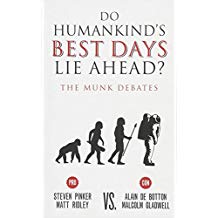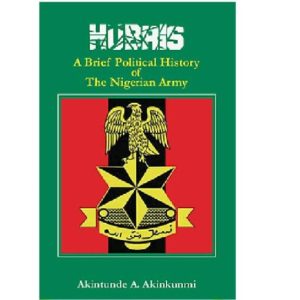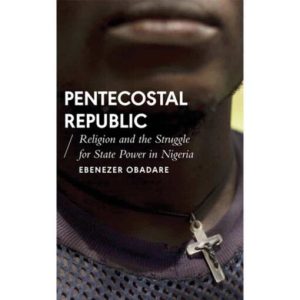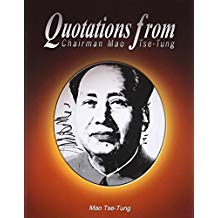-
GLIMADAY FORTE 1MG TABLET ₦2,980.25 QTY: 1
-
GLIMP M2 SR TAB 10`S ₦2,894.25 QTY: 1
Customer matched zone "Lagos Delivery Options"
“GLIMP M2 SR TAB 10`S” has been added to your basket. Continue shopping
Sort by:
4 Results
-
Do Humankind’s Best Days Lie Ahead?: The Munk Debates Progress. It is one of the animating concepts of the modern era. From the Enlightenment onwards, the West has had an enduring belief that through the evolution of institutions, innovations, and ideas, the human condition is improving. This process is supposedly accelerating as new technologies, individual freedoms, and the spread of global norms empower individuals and societies around the world. But is progress inevitable? Its critics argue that human civilization has become different, not better, over the last two and a half centuries. What is seen as a breakthrough or innovation in one period becomes a setback or limitation in another. In short, progress is an ideology not a fact; a way of thinking about the world as opposed to a description of reality. In the seventeenth semi-annual Munk Debates, which was held in Toronto on November 6, 2015, pioneering cognitive scientist Steven Pinker and best-selling author Matt Ridley squared off against noted philosopher Alain de Botton and best-selling author Malcolm Gladwell to debate whether humankind’s best days lie ahead. Reviews There are no reviews yet. Be the first to review “Do Humankind’s Best Days Lie Ahead?: The Munk Debates” Cancel replyYour rating * 1 2 3 4 5 Your review *Name * Email * ΔSku: 1691057695-343
Do Humankind’s Best Days Lie Ahead?: The Munk Debates
₦6,000.00 -
Hubris: A Brief Political History of the Nigerian Army The Nigerian Army is an institution that has played a pivotal role in the affairs of the Federal Republic of Nigeria. For more than half of the 57 years since Independence, Nigeria was directly ruled by a Military Government, largely composed of army officers, and always headed by one. It is impossible to explore any facet of modern Nigerian history or society without the military (and in particular the Army) looming significantly. Whilst several authors have documented the history of Nigeria (and significantly less many of its Army), rarely, if ever, has the impact of the politics of Nigeria on the Army, and vice-versa, formed the exclusive subject of study. This volume is an endeavor to fill that gap. The period leading up to the Army’s first overt entry into the politics of Nigeria is reviewed, firstly the pre-Independence period, and then the years immediately following independence. The effects of the Nigerianisation of the Army, especially of the officer corps, and of the policy decisions made following the passing of control over the Army from the British to the Nigerian Government are considered. The political circumstances surrounding the Army’s first overt entry into politics – the January 1966 coup – and the political performance of the subsequent first military regime are discussed, as a precursor to the second coup in July 1966. The impact of the Army’s direct involvement in politics on the military performance of both sides in the Civil War is explored. After a nine-year interregnum, in July 1975 Nigeria returned to the era of coups, with at least eight attempted and successful coups, some of them bloody, over the next quarter century before the return to civilian rule in 1999. The personalities leading the resultant military Governments, and the policies of those Governments, are explored, in an attempt to discern their legacy on the political development of Nigeria, and on the Nigerian Army as an institution. 5 Your review *Name *Sku: 1691056338-153
Hubris: A Brief Political History of the Nigerian Army
₦5,000.00 -
Pentecostal Republic: Religion and the Struggle for State Power in Nigeria Throughout its history, Nigeria has been plagued by religious divisions. Tensions have only intensified since the restoration of democracy in 1999, with the divide between Christian south and Muslim north playing a central role in the country’s electoral politics, as well as manifesting itself in the religious warfare waged by Boko Haram. Through the lens of Christian-Muslim struggles for supremacy, Ebanezere Obadare charts the turbulent course of democracy in the Nigerian Fourth Republic, exploring the key role religion has played in ordering society. He argues the rise of Pentecostalism is a force focused on appropriating state power, transforming the dynamics of the country and acting to demobilize civil society, further providing a trigger for Muslim revivalism. Covering events of recent decades to the election of Buhari, Pentecostal Republic shows that religio-political contestations have become integral to Nigeria’s democratic process, and are fundamental to understanding its future. Cover Paperback Reviews There are no reviews yet. Be the first to review “Pentecostal Republic: Religion and the Struggle for State Power in Nigeria” Cancel replyYour rating * 1 2 3 4 5 Your review *Name * Email * ΔSku: 1691057267-282
Pentecostal Republic: Religion and the Struggle for State Power in Nigeria
₦14,000.00 -
Quotations from Chairman Mao Tse-Tung Comrade Mao Tse-tung is the greatest Marxist-Leninist of our era. He has inherited, defended and developed Marxism-Leninism with genius, creatively and comprehensively, and has brought it to a higher and completely new stage. Mao Tse-tung’s thought is Marxism-Leninism of the era in which imperialism is heading for total collapse and socialism is advancing to world-wide victory. It is a powerful ideological weapon for opposing imperialism and for opposing revisionism and dogmatism. Mao Tse-tung’s thought is the guiding principle for all the work of the Party, the army and the country. Therefore, the most fundamental task in our Party’s political and ideological work is at all times to hold high the great red banner of Mao Tse-tung’s thought, to arm the minds of the people throughout the country with it and to persist in using it to command every field of activity. The broad masses of the workers, peasants and soldiers and the broad ranks of the revolutionary cadres and the intellectuals should really master Mao Tse-tung’s thought; they should all study Chairman Mao’s writings, follow his teachings, act according to his instructions and be his good fighters. In studying the works of Chairman Mao, one should have specific problems in mind, study and apply his works in a creative way, combine study with application, first study what must be urgently applied so as to get quick results, and strive hard to apply what one is studying. In order really to master Mao Tse-tung’s thought, it is essential to study many of Chairman Mao’s basic concepts over and over again, and it is best to memorize important statements and study and apply them repeatedly. The newspapers should regularly carry quotations from Chairman Mao relevant to current issues for readers to study and apply. The experience of the broad masses in their creative study and application of Chairman Mao’s works in the last few years has proved that to study selected quotations from Chairman Mao with specific problems in mind is a good way to learn Mao Tse-tung’s thought, a method conducive to quick results. We have compiled Quotations from Chairman Mao Tse-tung in order to help the broad masses learn Mao Tse-tung’s thought more effectively. In organizing their study, units should select passages that are relevant to the situation, their tasks, the current thinking of their personnel, and the state of their work. In our great motherland, a new era is emerging in which the workers, peasants and soldiers are grasping Marxism-Leninism, Mao Tse-tung’s thought. Once Mao Tse-tung’s thought is grasped by the broad masses, it becomes an inexhaustible source of strength and a spiritual atom bomb of infinite power. The large-scale publication of Quotations from Chairman Mao Tse-tung is a vital measure for enabling the broad masses to grasp Mao Tse-tung’s thought and for promoting the revolutionization of our people’s thinking. It is our hope that all comrades will learn earnestly and diligently, bring about a new nation-wide high tide in the creative study and application of Chairman Mao’s works, and, under the great red banner of Mao Tse-tung’s thought, strive to build our country into a great socialist state with modern agriculture, modern industry, modern science and culture and modern national defence! Reviews There are no reviews yet. Be the first to review “Quotations from Chairman Mao Tse-Tung” Cancel replyYour rating * 1 2 3 4 5 Your review *Name * Email * ΔSku: 1691058163-403
Quotations from Chairman Mao Tse-Tung
₦5,500.00











